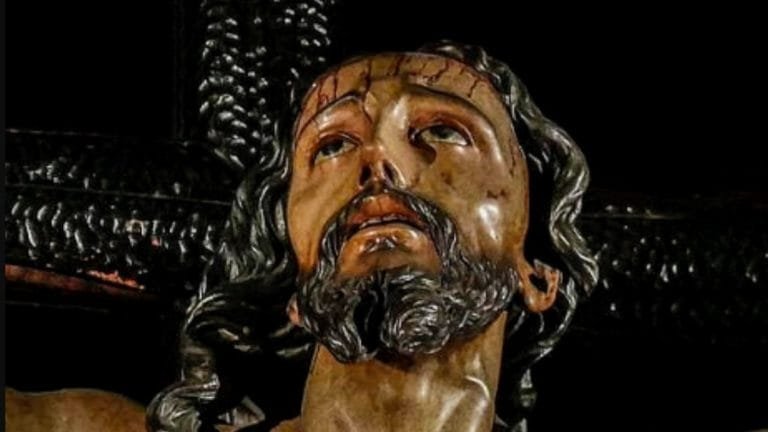POPE FRANCIS’ REFLECTION ON THE 24TH SUNDAY IN ORDINARY TIME YEAR A

ANGELUS
Saint Peter’s Square
24th Sunday in Ordinary Time Year A, 17 September 2023
________________________________________
Dear brothers and sisters, buongiorno!
Today, the Gospel talks to us about forgiveness (cf. Mt 18:21-35). Peter asks Jesus: “Lord, how often shall my brother sin against me, and I forgive him? As many as seven times?” (v. 21).
Seven, in the Bible, is a number that indicates completeness, and so Peter is very generous in the assumptions of his question. But Jesus goes further, and answers him: “I do not say to you seven times, but seventy times seven” (v. 22). He tells him, that is, that when one forgives, one does not calculate; that it is good to forgive everything, and always! Just as God does with us, and as those who administer God’s justice are required to do: forgive always. I say this a lot to priests, to confessors: always forgive, as God forgives.
Jesus then illustrates this reality through a parable, which again has to do with numbers. A king, after being implored, forgives a servant the debt of 10,000 talents: it is an excessive, immense value, ranging from 200 to 500 tons of silver: excessive. It was an impossible debt to settle, even by working a lifetime: yet this master, who recalls our Father, forgives it out of sheer “pity” (v. 27). This is God’s heart: he always forgives, because God is compassionate. Let us not forget how God is: he is close, compassionate and tender; this is God’s way of being. Then, however, this servant, whose debt has been forgiven, shows no mercy towards a fellow servant who owes him 100 denarii. This too is a substantial sum, equivalent to about three months’ wages – as if to say that forgiving each other costs money! – but not at all comparable to the previous figure that the master had forgiven.
Jesus’ message is clear: God forgives incalculably, exceeding all measure. This is how he is; He acts out of love, and gratuitously. God is not bought, God is free, he is all gratuitousness. We cannot repay Him but, when we forgive a brother or a sister, we imitate Him. Forgiving is not, therefore, a good deed that we can choose to do or not do: forgiving is a fundamental condition for those who are Christians. Every one of us, in fact, is “forgiven”: let us not forget this, we are forgiven, God gave his life for us and in no way can we recompense his mercy, which he never withdraws from his heart. However, by corresponding to his gratuitousness, that is, by forgiving one another, we can bear witness to him, sowing new life around us. For outside of forgiveness there is no hope; outside of forgiveness there is no peace. Forgiveness is the oxygen that purifies the air of hatred, forgiveness is the antidote to the poisons of resentment, it is the way to defuse anger and heal so many maladies of the heart that contaminate society.
Let us ask ourselves, then: do I believe I have received from God the gift of immense forgiveness? Do I feel the joy of knowing that He is always ready to forgive me when I fall, even when others do not, even when I am not even able to forgive myself? He forgives: do I believe that he forgives? And then: can I in turn forgive those who wrong me? In this respect, I would like to propose a little exercise to you: let us try, now, each one of us, to think of a person who has hurt us, and ask the Lord for the strength to forgive them. And let us forgive them out of love for the Lord: brothers and sisters, this will do us good; it will restore peace to our hearts.
May Mary, Mother of Mercy, help us to receive the grace of God and to forgive each other.
Source: https://www.vatican.va/content/francesco/en/angelus/2023/documents/20230917-angelus.html
Copyright © Dicastero per la Comunicazione – Libreria Editrice Vaticana
Formatting mine to facilitate reading.
ANGELUS ADDRESS
24th Sunday in Ordinary Time Year A,13 September 2020
In the parable in today’s Gospel reading, that of the merciful King (see Mt 18:21-35), twice we find this plea: “Be patient with me, and I will pay you back in full” (vv. 26, 29). The first time it is pronounced by the servant who owes his master ten thousand talents, an enormous sum. Today it would be millions and millions of dollars. The second time it is repeated by another servant of the same master. He too is in debt, not towards the master, but towards the same servant who has that enormous debt. And his debt is very small, maybe a week’s wages.
The heart of the parable is the indulgence the master shows towards his servant with the bigger debt. The evangelist underlines that, “moved with compassion the master”– we should never forget this word of Jesus: “Have compassion”, Jesus always had commission – “moved with compassion the masterlet him go and forgave him the loan” (v. 27). An enormous debt, therefore a huge remission! But that servant, immediately afterwards, showed himself to be pitiless towards his companion, who owed him a modest sum. He does not listen to him, he is extremely hostile against him and has him thrown in prison until he has paid his debt (see v. 30). The master hears about this and, outraged, calls the wicked servant back and has him condemned (see vv. 32-34). “I forgave you a great deal and you are not capable of forgiving so little?”
In the parable we find two different attitudes: God’s – represented by the king who forgives a lot, because God always forgives – and the human person’s. The divine attitude is justice pervaded with mercy, whereas the human attitude is limited to justice. Jesus exhorts us to open ourselves with courage to the strength of forgiveness, because in life not everything can be resolved with justice. We know this. There is a need for that merciful love, which is also at the basis of the Lord’s answer to Peter’s question, which precedes the parable. Peter’s question goes like this: “Lord, if my brother sins against me, how often must I forgive him?” (v. 21). And Jesus replies, “I say to you, not seven times but seventy-seven times” (v. 22). In the symbolic language of the Bible this means that we are called to forgive always.
How much suffering, how many wounds, how many wars could be avoided if forgiveness and mercy were the style of our life! Even in families, even in families. How many families are disunited, who do not know how to forgive each other. How many brothers and sisters bear resentment within. It is necessary to apply merciful love to all human relationships: between spouses, between parents and children, within our communities, in the Church and also in society and politics.
Today as we were celebrating the Mass, I stopped; I was touched by a phrase in the first reading from the book of Wisdom. The phrase says, remember your end and stop hating. A beautiful phrase. But think of the end. Just think, you will be in a coffin… and will youtake your hatred there? Think that in the end you can stop hating and resenting. Let’s think of this phrase that is very touching. Remember your end and stop hating.
It is not easy to forgive because although in moments of calm we think “Yes, this person has done so many things to me but I have done many too. Better to forgive so as to be forgiven”, but then resentment returns like a bothersome fly in the summer that keeps coming back. Forgiveness isn’t something we do in a moment, it is a something continuous, against that resentment, that hatred that keeps coming back. Let’s think of our end and stop hating.
Today’s parable helps us to grasp fully the meaning of that phrase we recite in the Lord’s Prayer: “And forgive us our trespasses, as we forgive those who trespass against us” (see Mt 6:12). These words contain a decisive truth. We cannot demand God’s forgiveness for ourselves if we in turn do not grant forgiveness to our neighbour. It is a condition. Think of your end, of God’s forgiveness, and stop hating. Reject resentment, that bothersome fly that keeps coming back. If we do not strive to forgive and to love, we will not be forgiven and loved either.
Let us entrust ourselves to the maternal intercession of the Mother of God: May she help us to realise how much we are in debt to God, and to remember that always, so that our hearts may be open to mercy and goodness.
SOURCE: http://w2.vatican.va/content/francesco/en/angelus/2020/documents/papa-francesco_angelus_20200913.html
EMPHASIS MINE.
ANGELUS ADDRESS
24th Sunday in Ordinary Time Year A, 17 September 2017
Dear Brothers and Sisters, Good morning!
This Sunday’s Gospel passage (cf. Mt 18:21-35) offers us a lesson on forgiveness which does not deny wrongdoing, but recognizes that human beings, created in God’s image, are always greater than the evil they commit. Saint Peter asks Jesus: “Lord, how often shall my brother sin against me, and I forgive him? As many as seven times?” (v. 21). To Peter, forgiving the same person seven times already seemed the maximum possible. And perhaps to us it may already seem too much to do so twice. But Jesus answers, “I do not say to you seven times, but seventy times seven” (v. 22), meaning always. You must always forgive. And he confirms this by telling the parable of the merciful king and the wicked servant, in which he shows the inconsistency of the man who was first forgiven and then refused to forgive.
The king in the parable is a generous man who, spurred by compassion, forgives an enormous debt — “10,000 talents”: enormous — to a servant who beseeches him. That same servant, however, as soon as he meets another servant like himself who owes him 100 dinarii — which is much less — behaves in a ruthless way and has him thrown in prison. The servant’s inconsistent behaviour is the same as ours when we refuse to forgive our brothers and sisters. Whereas the king in the parable is the image of God who loves us with a love that is so rich in mercy as to welcome us, love us and forgive us continuously.
From the time of our Baptism, God has forgiven us, releasing us from an intractable debt: original sin. But that is the first time. Then, with boundless mercy, he forgives us all our faults as soon as we show even the least sign of repentance. This is how God is: merciful. When we are tempted to close our heart to those who have offended us and tell us they are sorry, let us remember our Heavenly Father’s words to the wicked servant: “I forgave you all that debt because you besought me; and should not you have had mercy on your fellow servant, as I had mercy on you?” (vv. 32-33). Anyone who has experienced the joy, peace and inner freedom which come from being forgiven should open him or herself up to the possibility of forgiving in turn.
Jesus wished to introduce the teaching of this parable into the Our Father. He linked the forgiveness which we ask from God with the forgiveness that we should accord our brothers and sisters: “And forgive us our debts, as we also have forgiven our debtors” (Mt 6:12). God’s forgiveness is the symbol of his “overflowing” love for each of us. It is the love that leaves us free to distance ourselves, like the prodigal son, but which awaits our return every day. It is the resourceful love of the shepherd for the lost sheep. It is the tenderness which welcomes each sinner who knocks at his door. The Heavenly Father — our Father — is filled, is full of love and he wants to offer it to us, but he cannot do so if we close our heart to love towards others.
May the Virgin Mary help us to become ever more aware of the gratuitousness and the greatness of the forgiveness received from God, to become merciful like him, Good Father, slow to anger and great in love.
SOURCE: http://w2.vatican.va/content/francesco/en/angelus/2017/documents/papa-francesco_angelus_20170917.html
EMPHASIS MINE.
For the 24th Sunday in Ordinary time Year A 2020 reflection homily, click HERE.
FOR THE 24TH SUNDAY IN ORDINARY TIME YEAR A 2020 MASS PRAYERS AND READINGS, CLICK HERE.

